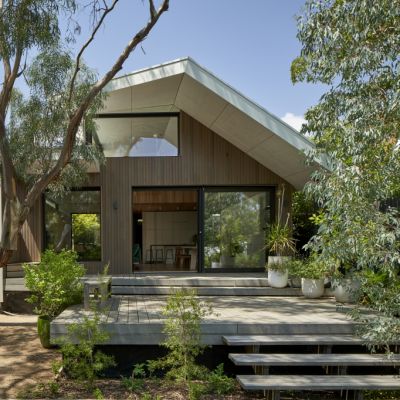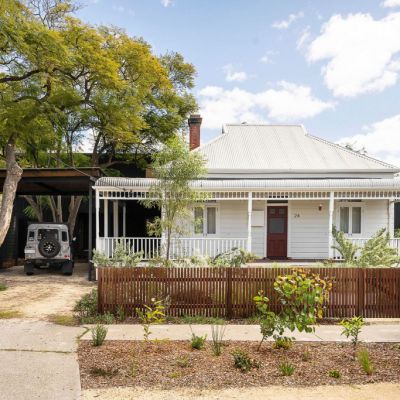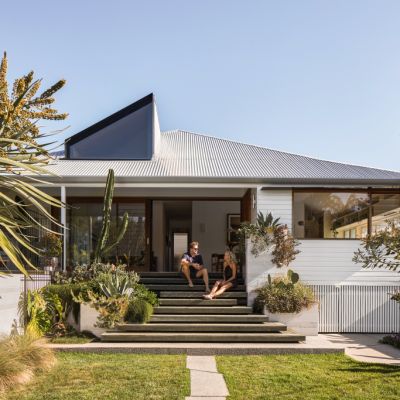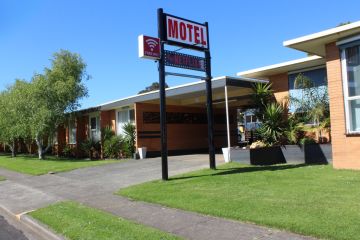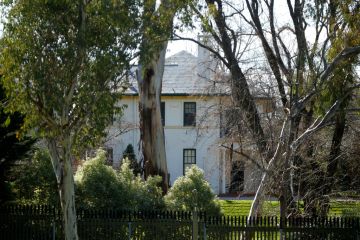The Australian designers turning waste into stylish homewares
Australians produce a huge amount of waste every year – around 76 million tonnes at last count.
The challenge of what to do with this waste is spurring some environmentally conscious designers to find creative solutions.
We spoke to three Australian businesses turning plastic, concrete and timber waste into stylish products for our homes.
Defy Design
Inspired by the Precious Plastic movement – an open-source system for plastic recycling founded in the Netherlands – Sydney product designers Sam Davies and Will Thompson launched Defy Design in 2019 with a mission to “make plastic circular”.
With the help of a council grant, they acquired a set of the Dutch-designed machinery used to shred and mould plastic into new forms and began demonstrating how it worked at markets, schools, festivals and community events.
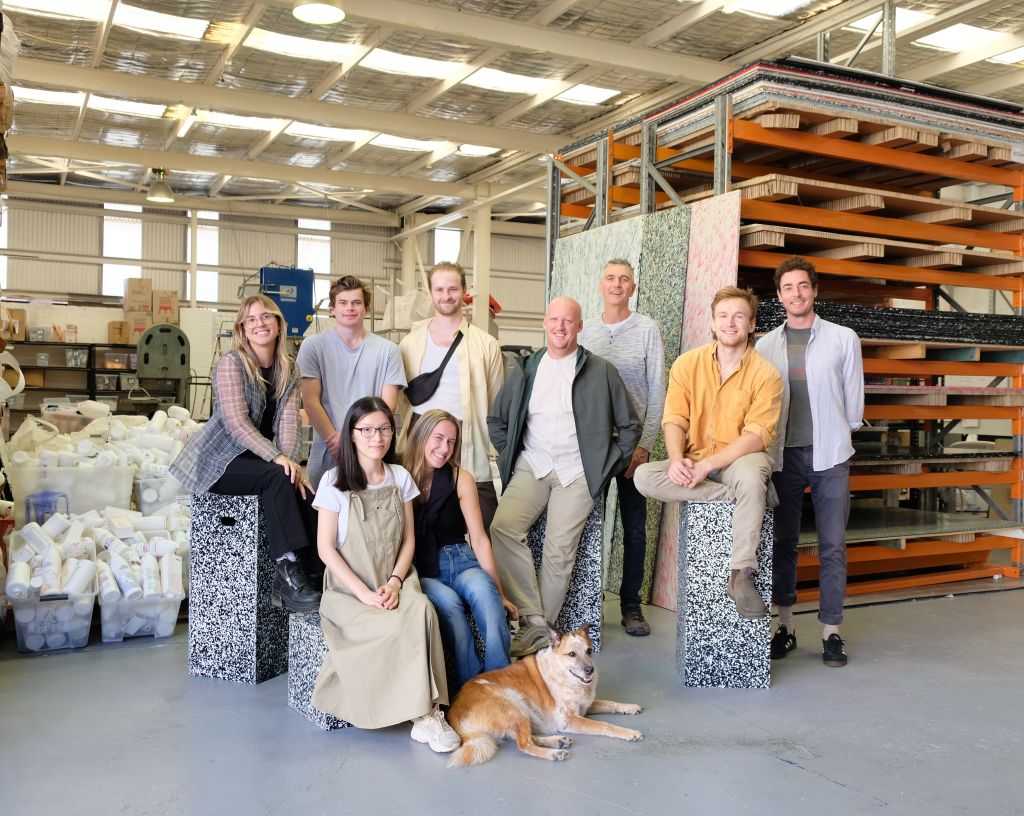
“We started as a community education organisation working out of a trailer and a shed at home,” Davies says.
“By recycling in front of people’s eyes, they can see that it is actually quite a simple process and they understand their role.”
Encouraged by the public’s response to their products, they started partnering with local councils and businesses to source plastic waste that could be repurposed.
“Typical waste streams would be shampoo bottles from hair salons,” Davies says. “We also collect defective batches from other manufacturers.”
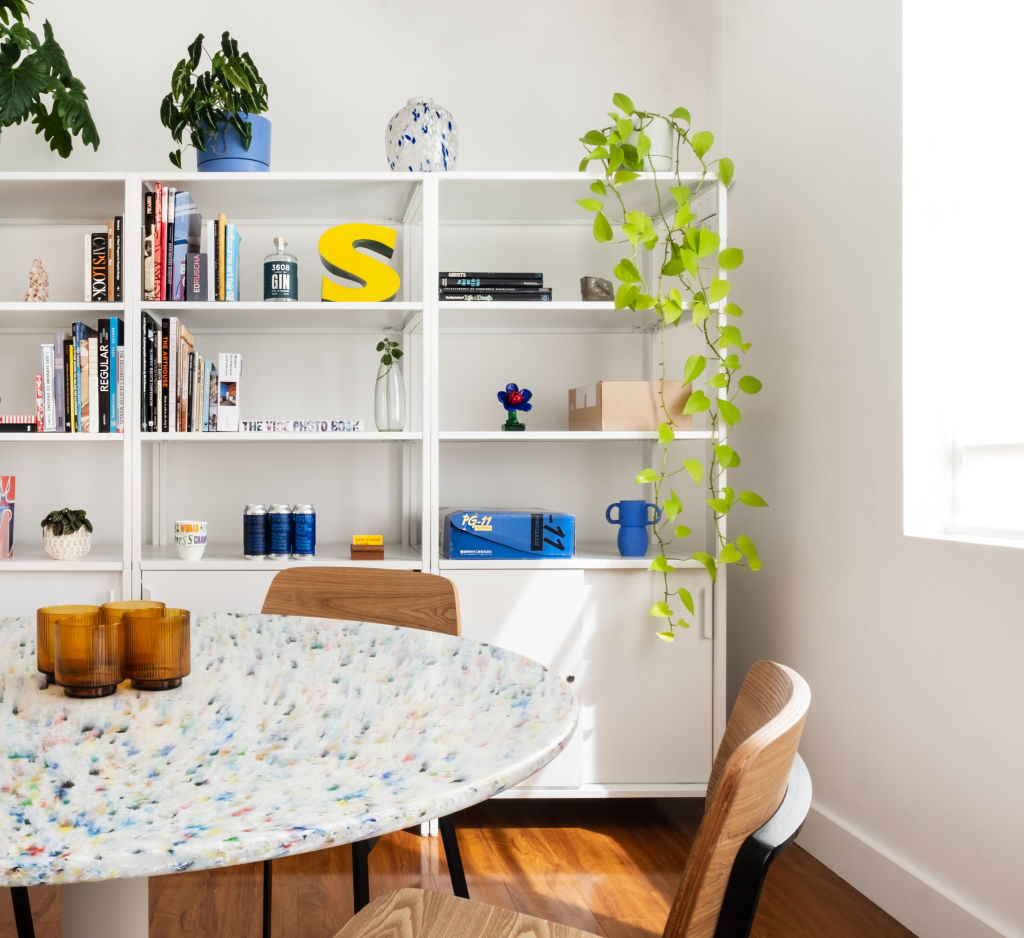
From its warehouse in Botany, Defy now makes products for other companies – like colourful chopping boards for Fat Tuesdays and combs for Nonna’s Grocer – and creates its own through its in-house design department.
Its current range, sold through its website, includes serving platters, coasters, self-watering plant pots and stools. It also sells recycled plastic sheets that can be used as an alternative to traditional building materials like plywood.
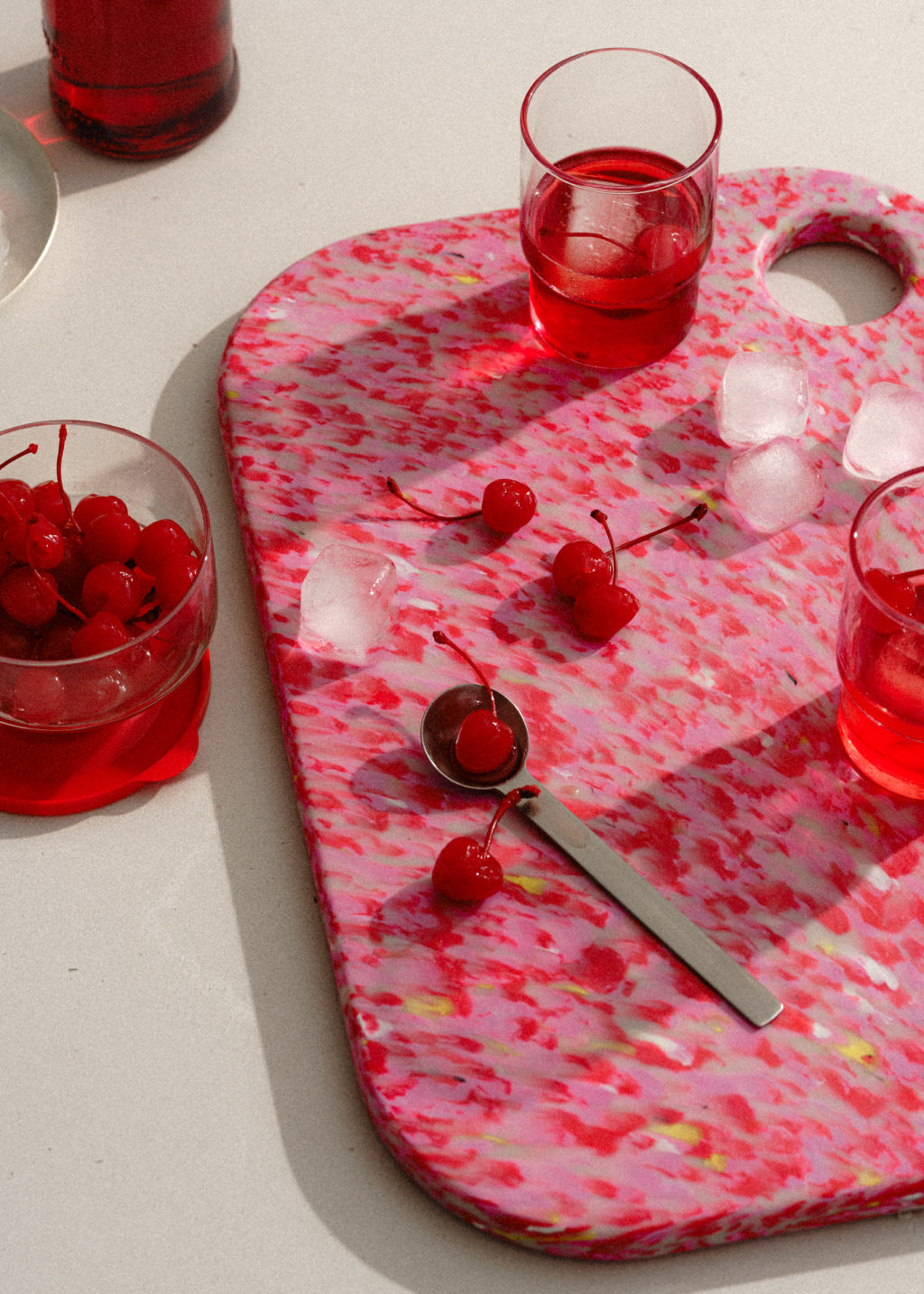
“We’re at a scale now where we can do pretty big projects and we’re starting to get through multiple tons of plastic a month, which is really exciting,” Davies says.
“There’s more than enough plastic in the world, so it’s really important that plastic products get turned into something useful … by creating homewares and really beautiful, high-value products, you really turn the tap off new plastic.”
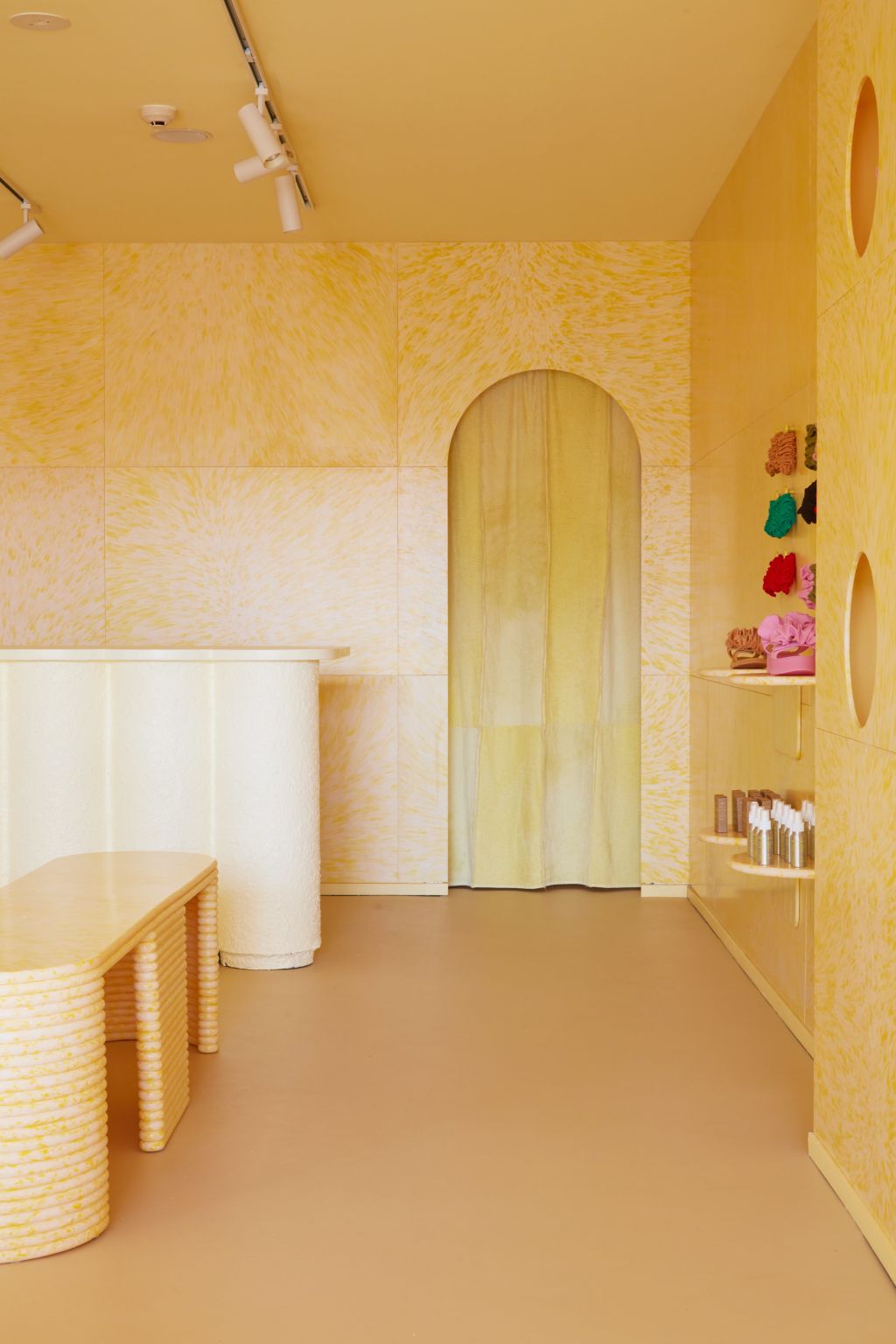
Five Mile Radius
Founded by architect Clare Kennedy in 2016, Brisbane design studio Five Mile Radius transforms construction waste into unique furniture for homes and commercial spaces.
Named after an idea voiced by Mahatma Gandhi that people should build with materials found within five miles of a given site, the studio works with the local construction industry to source waste materials.
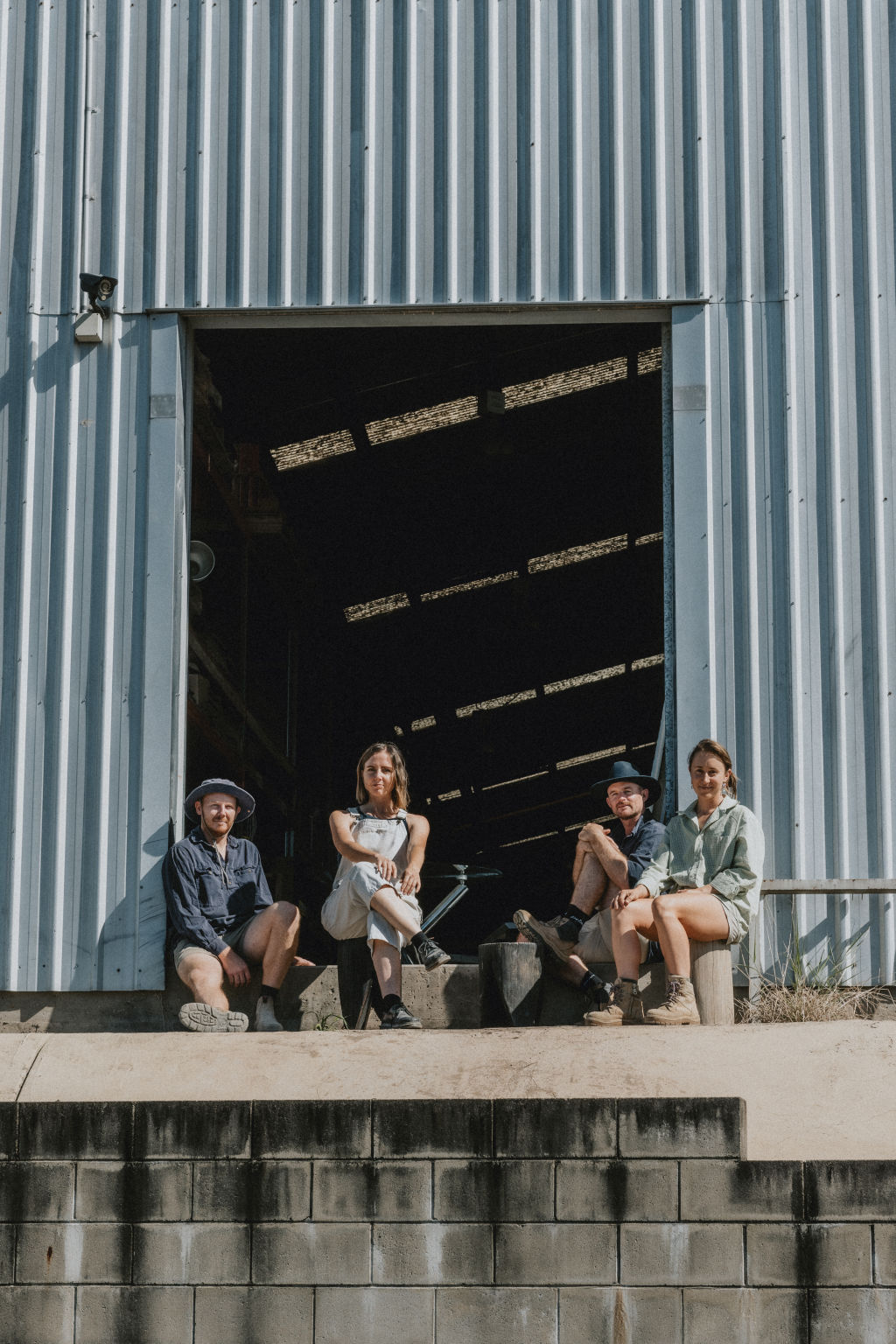
Its range, made in its Yeronga workshop and sold online, includes terrazzo tables created using excess concrete from building sites.
“We work very quickly because the concrete comes to us wet,” Kennedy says.
“Our polishing process means that you’re kind of elevating the material … and that’s part of that circular economy approach of trying to keep resources in play at their highest value.”
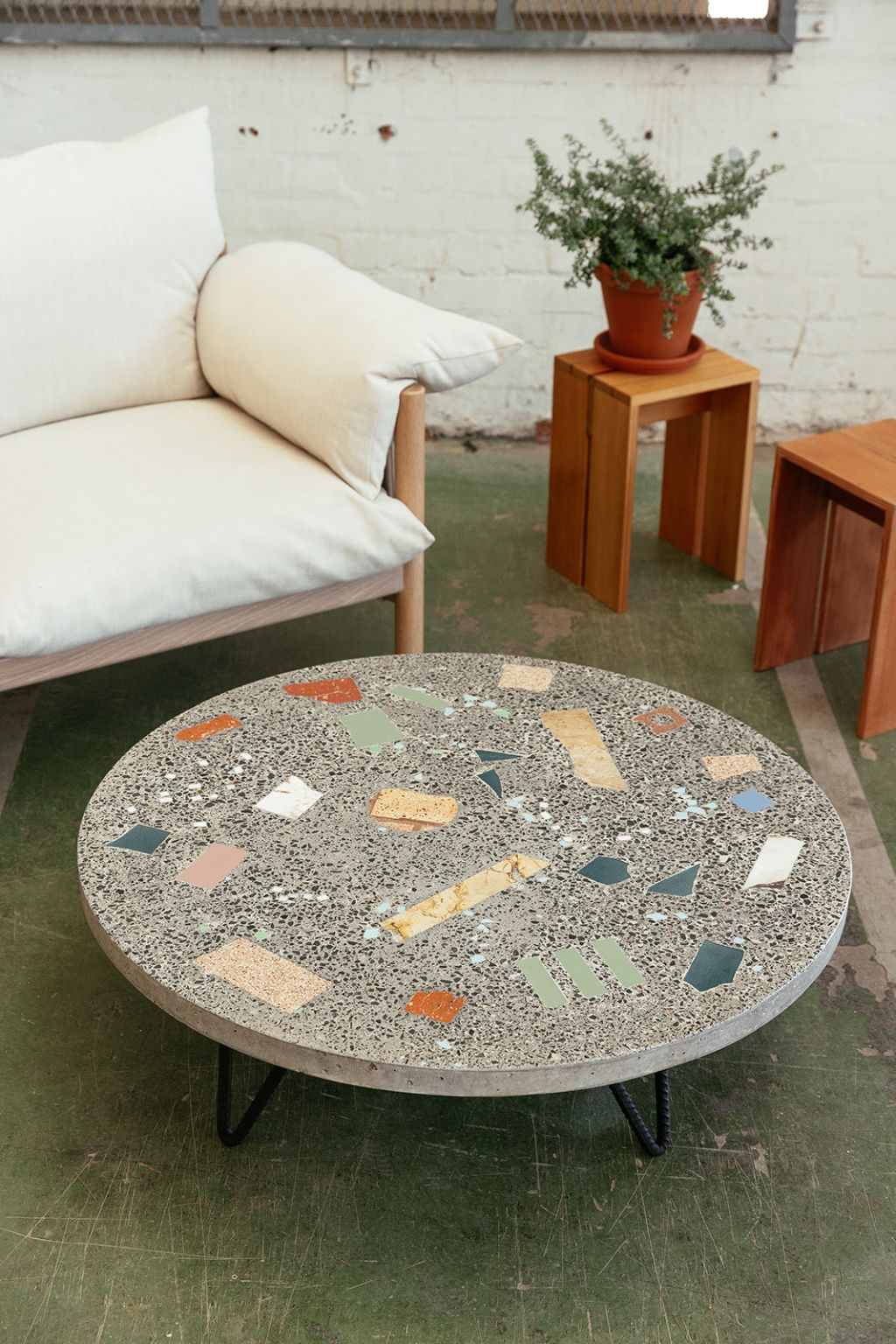
The studio also shapes stools from small pieces of timber salvaged from home demolitions (“There’s often no market for those offcuts”) and decommissioned telegraph poles, which they process by hand using chainsaws and then char.
As an architecture firm, Five Mile Radius also designs commercial spaces. It recently worked to restore and extend a heritage-listed 1920s pub in Eumundi on the Sunshine Coast for West Australian brewery Matso’s.
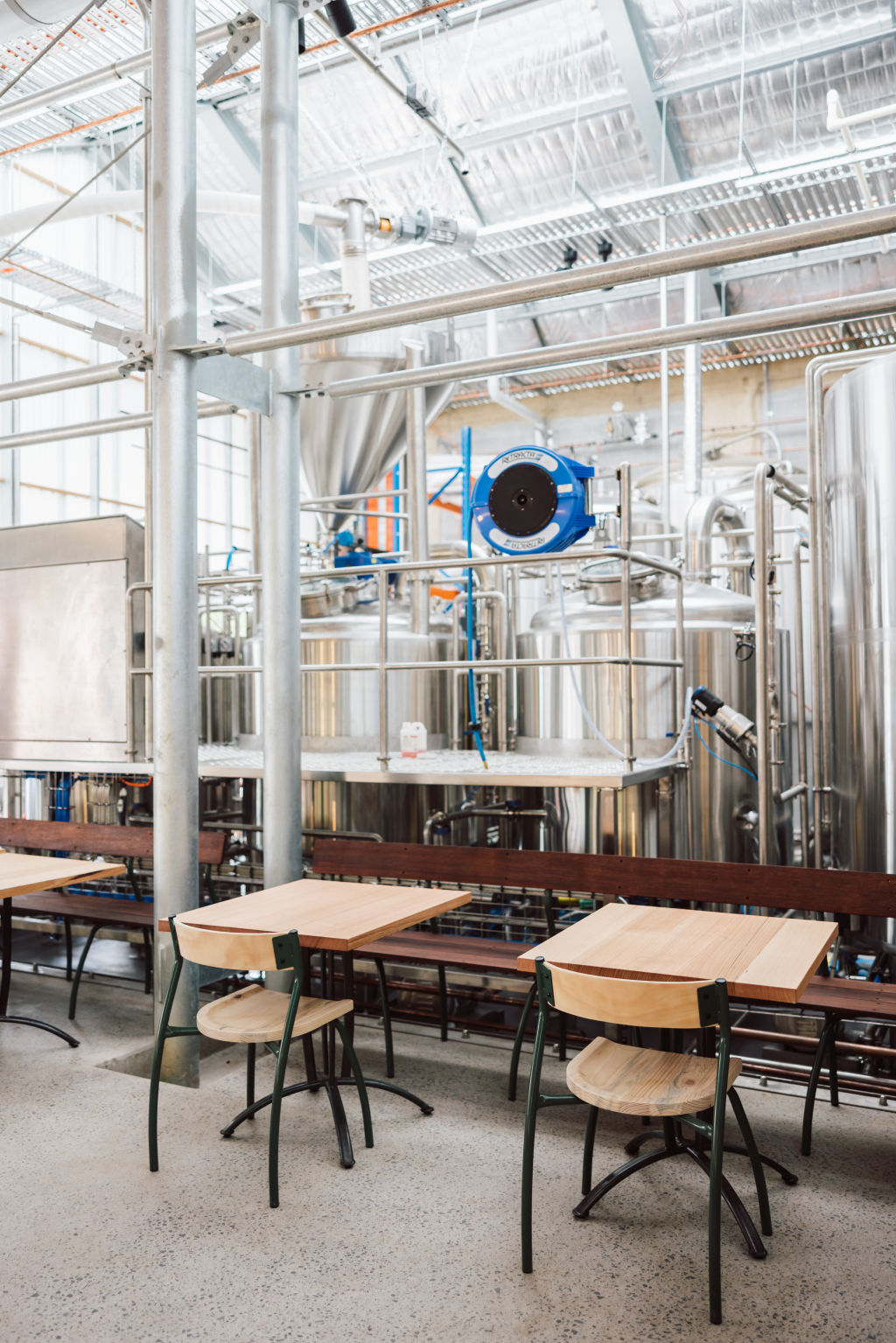
True to the company’s ethos, it found ways to repurpose materials from an extension that was demolished as part of the project.
“We stored all the materials and then re-used them in the rebuilt extension,” Kennedy says. “We also made all of the furniture using the demolished building.”
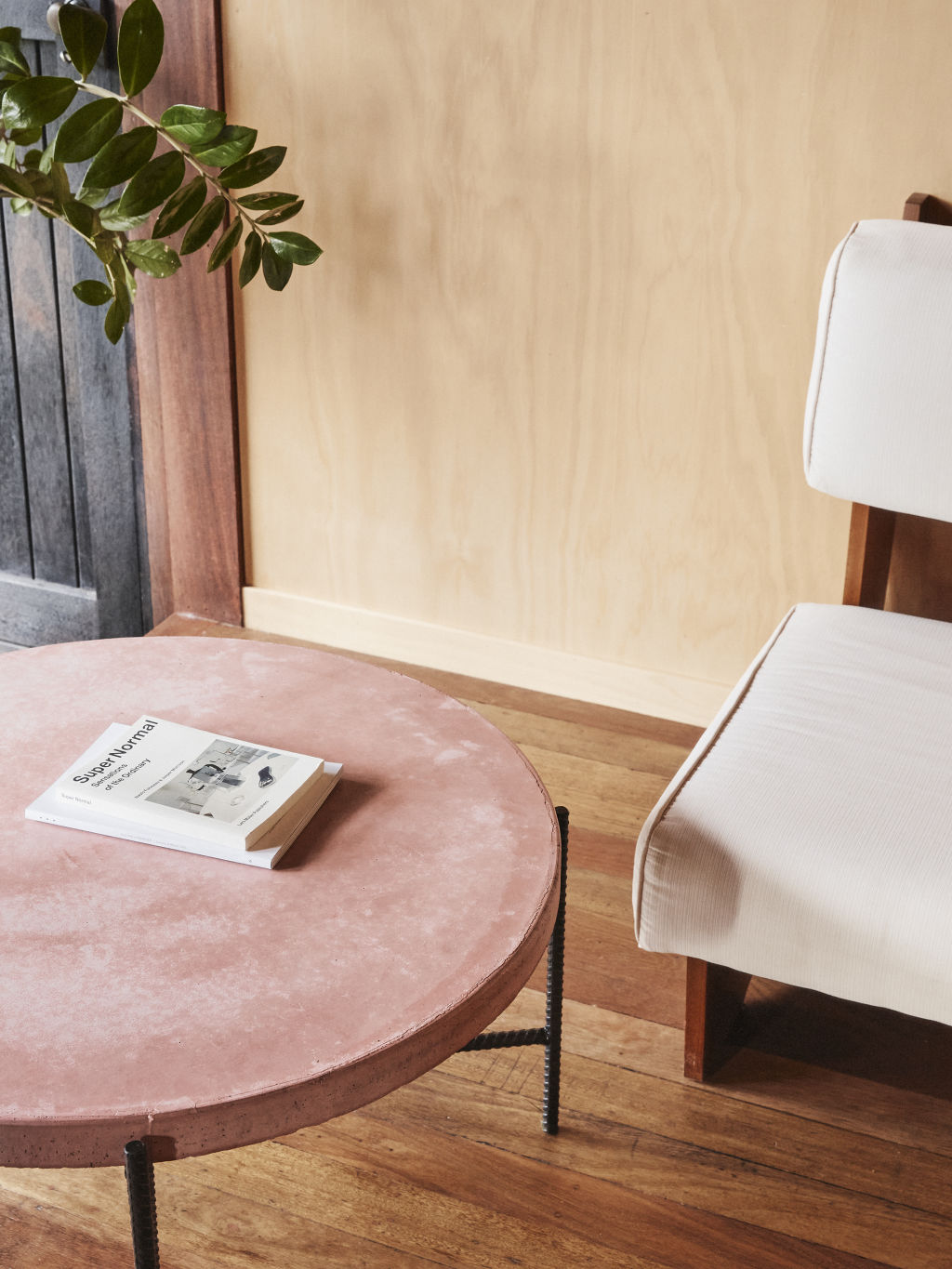
With plans to release more products soon, the studio hopes to inspire others to explore the possibilities of working with waste and local materials.
“It’s not particularly high-tech and that’s intentional … we’re actually trying to open up the market and make people see that some of this stuff isn’t that complicated,” Kennedy says.
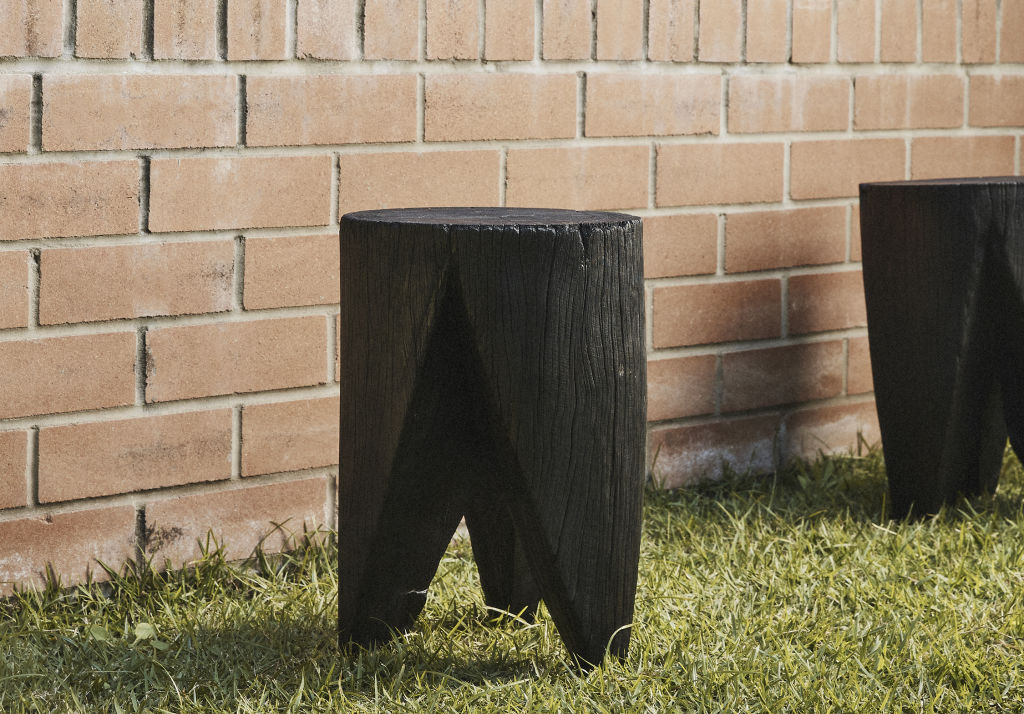
YARD Furniture
Peter McManus is “anti-waste”, so when he saw good quality timber being thrown out on construction sites, he took it on himself to save it.
“I started making furniture out of it and it just grew from there,” he says.
This “obsession” with saving timber from landfill led McManus, a carpenter by trade, to establish YARD Furniture 12 years ago.
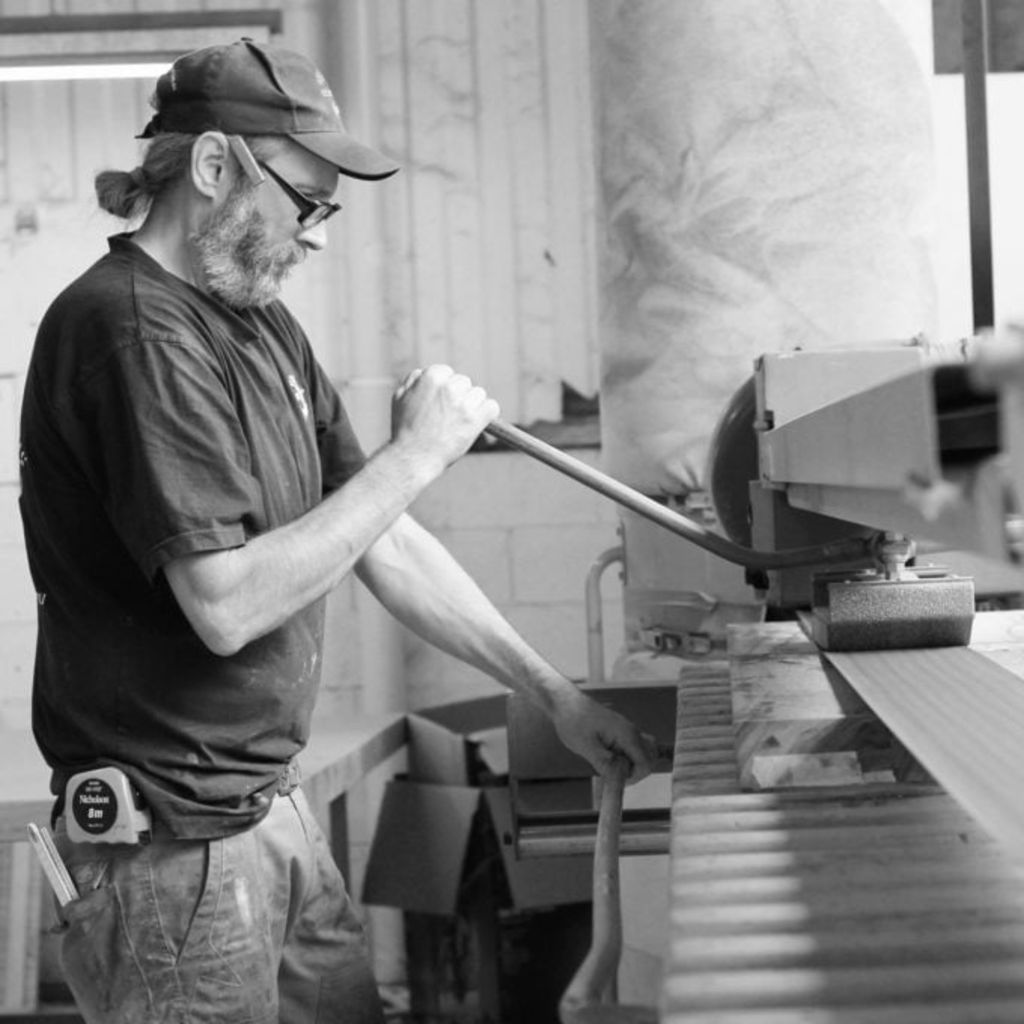
Based in Preston in Melbourne’s north-east, the business creates furniture out of timber salvaged from building sites around Victoria.
“I made a pact when I started this that if it’s not recycled timber, I’m going to do something different,” he says. “I’m really passionate about that idea and that ethos.”
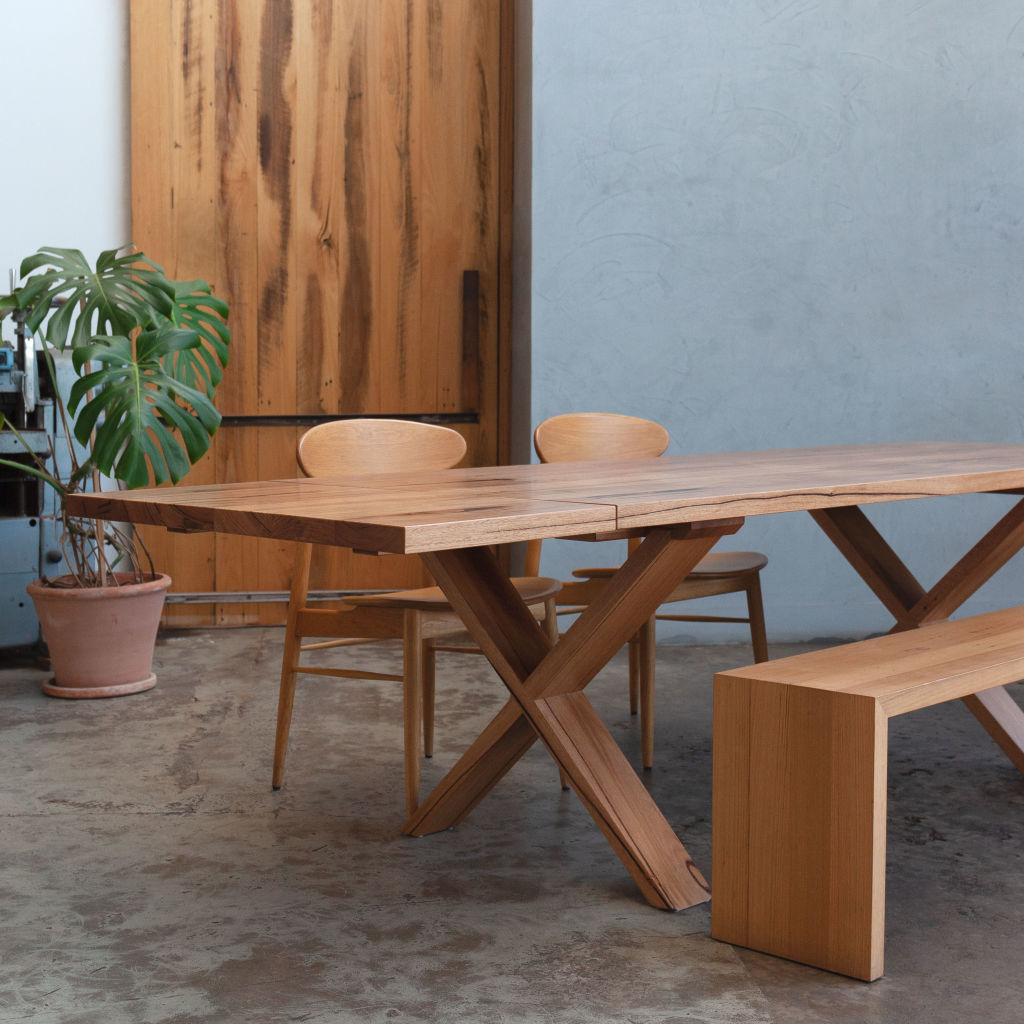
While most of his material comes from industrial sites, McManus has also worked with timber from places like the National Gallery of Victoria and the former Windsor Smith shoe factory.
Some of YARD’s most popular pieces, all of which are made to order, include the De Vine Side Table, Sunrise Platform Bed and Tallulah dining table.
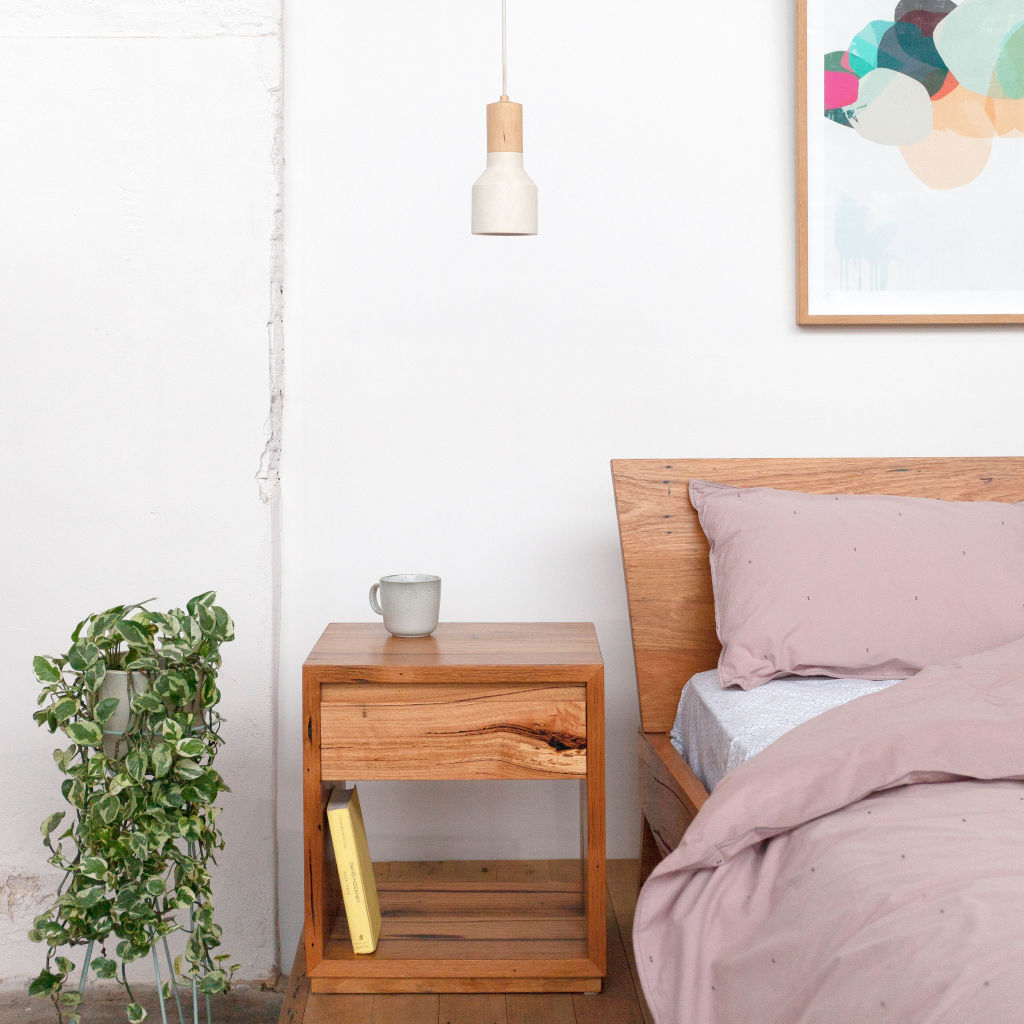
Committed to also eliminating waste at the other end of the production process, it collects its sawdust to give away to passers-by.
“We have it out the front for people to collect and they use it in their gardens and things like that,” McManus says.
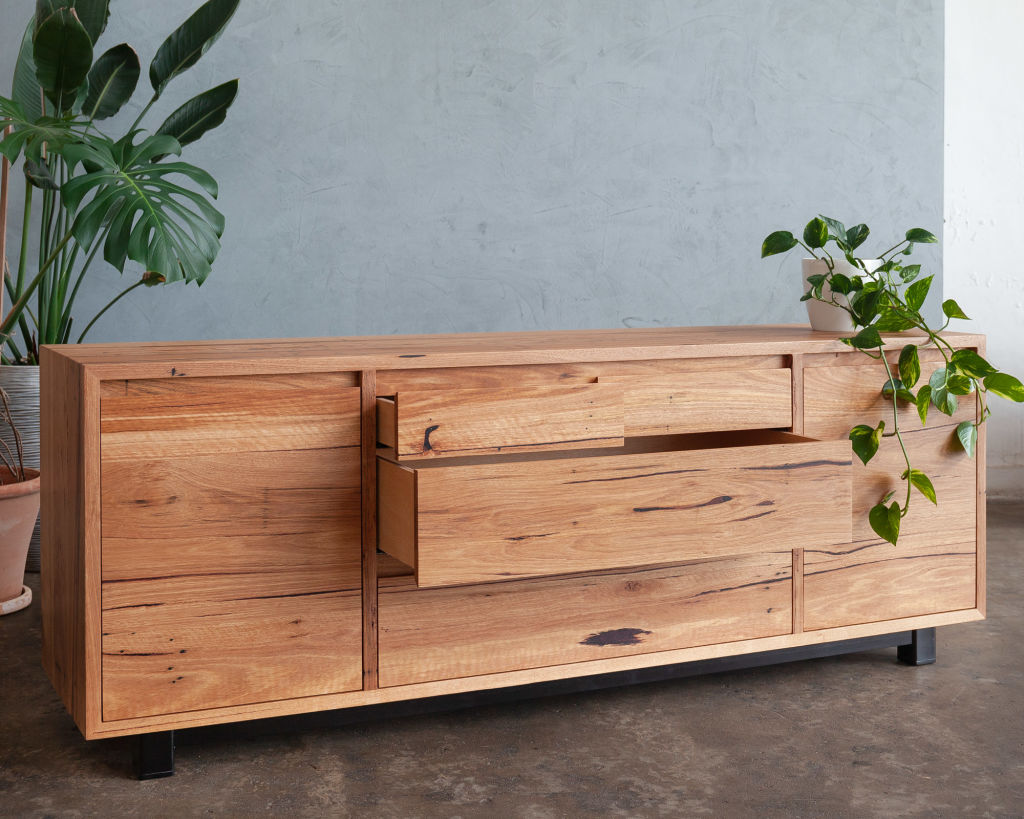
He says the motivation for his approach stems from his concern for the planet and a desire to do his bit for the environment.
“It kind of comes back to my dad who was very similarly minded, so I guess I learnt a lot of that from him – to see the value in stuff that people don’t see value in.”
We recommend
We thought you might like
States
Capital Cities
Capital Cities - Rentals
Popular Areas
Allhomes
More
